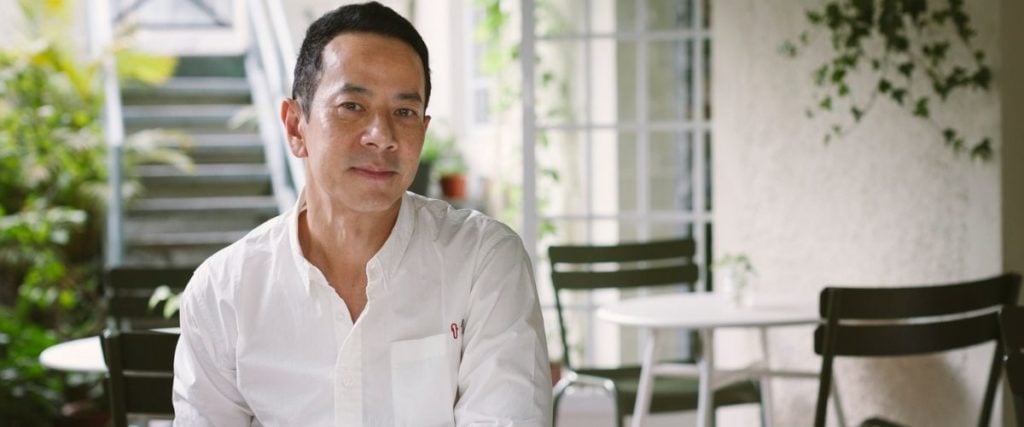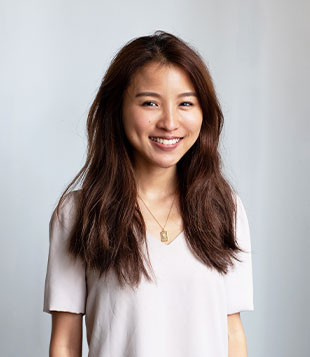Award-winning filmmaker Ray Yeung is the creative mind behind Suk Suk, a daring portrait of Hong Kong’s queer community. He tells Hive Life his mission as a gay filmmaker.
Before piracy and streaming services, the Hong Kong film industry did enjoy its halcyon days – what was known as the golden era, the Hollywood of the Far East. The period, spanning from the 1980s to the early 1990s, was marked by the auteurs Wong Kar Wai, Stephen Chow, John Woo, and encompassed a vast array of genres from comedy and Kung Fu to mafia drama. For decades, the city exported more films than any other country bar the US and was the third-largest motion picture industry in the world. Yet, despite the immense success and influence garnered by the industry at the time, local filmmakers back then were (and to a certain extent still are) unwilling to take on controversial topics, particularly LGBTQ-themed ones.
And so, when the 2019 award-winning and critically acclaimed Hong Kong drama film Suk Suk (叔叔 or “uncle,” a common Cantonese term used for older men) was eventually released – decades after the city’s cinema heyday – it felt to many both bracing and foreign. To Hong Kong people, in particular, a melancholic love story between two closeted men in their twilight years was no doubt an unusual subject matter as, to this day, LGBTQ characters in Asian cinema remain to be fairly scarce. In spite of any early reticence, however, the film was nominated in five categories at the 2019 Golden Horse Awards in Taipei and voted best Hong Kong film of 2019 by the Hong Kong Film Critics Society.
Here, director Ray Yeung recounts the sweat and tears behind the victory, his views on queer representation, and why he insists on calling himself a gay filmmaker.
Identifying as a Gay Filmmaker
“This is not a genre, this is my world.”
Yeung has written and directed three feature films so far, and they all revolve around queer characters. As a patron for LGBTQ causes, he also revived the previously defunct HKLGFF festival back in 2000, with the purpose of promoting equal opportunities through cinematic works of art.
These accomplishments invariably raise the question of how his identity as a queer man has shaped his work, to which Yeung replies unequivocally, “I am a filmmaker, but I’m also an activist. There are filmmakers who loathe the label of ‘gay filmmaker’. But, I don’t. I embrace it wholeheartedly. People have come to me and asked why I am not exploring other genres, and to them, I say – “This is not a genre, this is my world. My world is vast, and there is a lot that I have yet to explore.”
In response to sceptics’ misgivings regarding the need for more LGBTQ-focused movies (misgivings based off of the increasing number of queer representation in films), Yeung explains, “The sheer number doesn’t matter if those characters are one-dimensional or if the real issues are merely glossed over. What is visible to us is only the tip of the iceberg, when in reality, there are still countless people struggling to get recognised in other parts of the world.”
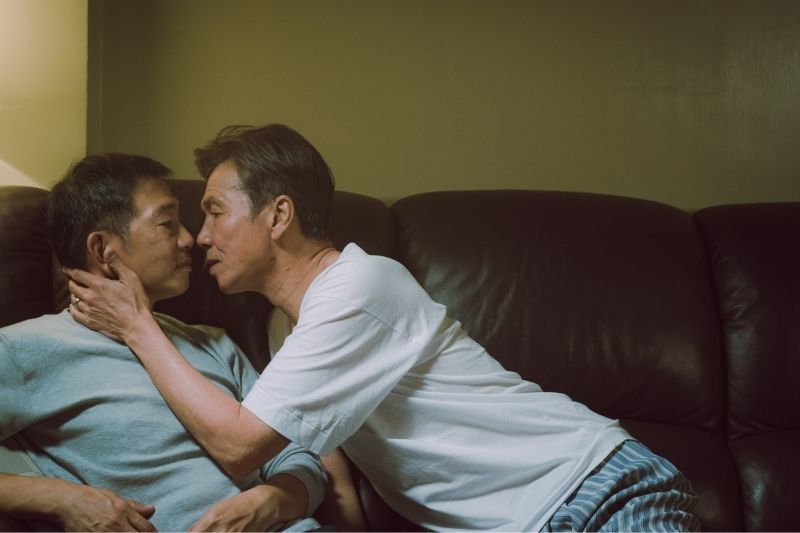
Fighting an Uphill Battle of Stigma
Unsurprisingly, Yeung had to pole vault barrier after barrier in order to get Suk Suk off the ground, the most memorable of which being the herculean task of casting. “One of the core messages of the movie is that it is extremely difficult to come out in Hong Kong. You don’t even see people coming out to their family, let alone actors who are out of the closet. It was almost impossible to find gay, seasoned actors to play these two roles in Hong Kong,” Yeung laments.
This is down to the fact that most of these seasoned actors are from the Shaw Brothers action movie era, and are, as a result, very much attached to the public persona of the red-blooded, macho hero. Of the rest who expressed interest, many confessed trepidation in engaging intimately with another man on screen. This excruciating process took 10 months and 100 actors before eventually landing on the two perfect leads, Tai Bo and Ben Yuen.
Aside from casting challenges, financing was just as, if not more, of an uphill battle. “Unlike the West, where your film can get sponsored for social or artistic reasons, irrespective of profit potentials, the Hong Kong government will only finance something if they see commercial value. In an effort to find investors, I approached Hong Kong film director Stanley Kwan, who was generous enough to take the script to China and Taiwan with me. Eventually, we gathered a circle of private investors for a table read and a few of them decided to chip in.”
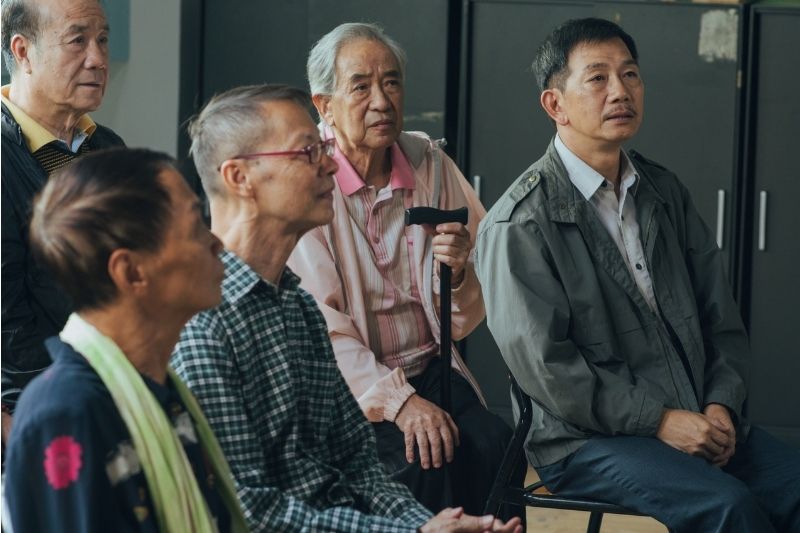
LGBT+ Representation: Stripping Back Assumptions
“All I’m trying to show is, this is what their experiences are like, and that’s why they are who they are now”
The Oral History of Older Gay Men in Hong Kong by Travis S. K. Kong was the provenance of the film’s concept. “In one of the interviews from the book, a man was asked if he regretted having stayed in the closet his entire life. To which he responded, ‘No, I’m a success story. I came from China and I built a life from nothing.’ To me, that was quite jarring, as someone who has lived in the West for so long, the idea that it’s always better to be true to oneself, to be your own person, was very much instilled in me. But I realised, who are we to judge? Why should we deem someone a failure just because he doesn’t live up to our ideals? In a way he has been true to himself, we just have different priorities. This story was really what struck me because it’s something we’ve never seen in movies before. The idea is to show their struggles without any preconceived notions. All I’m trying to show is that this is what their experiences are like, and that’s why they are who they are now.” In taking this impartial stand, Yeung avoided reducing a personal and complicated decision into a blanket statement that would have left no room for interpretation.
For many, the stereotypical perception of homosexual men is of a stylish, muscular, Antoni-Porowski kind. Rarely do we imagine them as old and senile, and even when we do, we tend to think of them as this group of stoic, affectless men. Suk Suk, with its recurring tropes of isolation and resignation, subverts this conventional conceit, choosing instead to focus on the plight of older gay men in Hong Kong, as delineated in The Oral History of Older Gay Men in Hong Kong. In an interview with Ariana magazine, Yeung explained the reality of older gay men in Hong Kong. Unlike younger generations who may feel comfortable in the city’s Western and youth-oriented mainstream gay scene, older gay men are divested of a safe place to meet like-minded individuals, leaving many feeling left behind, deserted. “Many older gay men [I interviewed] are blue-collar workers with lower income. The activities of the mainstream gay scene such as going to high-end clubs, are too expensive for them, even if they are willing to [pay the fee] and go inside, people will just ignore them or even stare at them in a judgemental way,” he explains.
And it’s thanks to the stellar performances from his lead actors that Yeung is able to so successfully pull back the veil of impassivity and reveal the complex, layered emotional state in which the protagonists live. “Underneath the facade, they have all these passions and emotions that they’re desperately trying to conceal. They’re going in and out of roles, as a father, a husband, a taxi driver, and a straight man. They’re constantly acting, playing a role, perpetually carrying this guilt, this elephant in the room which they will never address. Naturally, they feel distraught, lonely, and incomplete.”
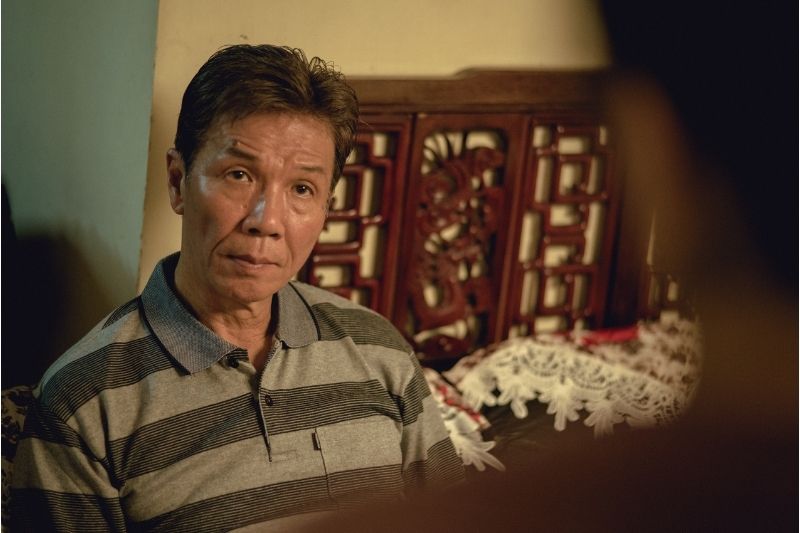
Fulfilling his Mission
This wistful narrative outlined above starkly contrasts with Yeung’s real-life experience. “My coming out was quite easy. Others tried to make me feel ashamed but I never submitted to it because I always knew how I felt was right, I was just waiting for the world to catch up.” Being comfortable in his own skin, however, was not enough. He wanted to play a part in helping the world catch up. “I thought, for [change] to happen, I have two options. Either to sit on the bench and wait, or do something to speed things along; I chose the latter.”
In Yeung’s position, his entry point is through the lens – by sustaining the HKLGFF and making relevant, meaningful LGBTQ-themed films. Yeung’s efforts have come into fruition, but to scale up the impact beyond the cinematic realm, he concedes that there need to be substantial social and structural changes. “Here in Hong Kong, there’s no discrimination law, no gay marriage. We don’t even have all our basic rights, and if something bad happens, the onus is on us to fight for justice. But to be fair, things have evolved a lot. If I had made this movie 12 years ago, I don’t think the reaction would’ve been this positive. There would have been a crusade of comments about how disgusting the movie was. What’s hopeful is that we see countries legalising gay marriage and making conscious efforts in breaking down stigmas, and those sentiments have had a spillover effect.”
With regards to future plans, Yeung says he is surveying the landscape, searching for a germ of an idea, “I’m talking to people and mainly researching at the moment. I’m trying to find something that I can spend the next four years working on.”
Looking Ahead
24th May 2020 marked the anniversary of Asia’s first gay marriage law passed in Taiwan; and on 7th July 2020, the Thailand cabinet approved a bill which, if passed by parliament, would grant legal recognition to same-sex union. These laws, albeit flawed, should be considered part of a series of gradual progression – ten, twenty, thirty years down the line, queer films may no longer be labelled as a genre and its characters may no longer feel foreign to us.
Banner Photo Credit: Viola Gaskell (courtesy of Zolima CityMag)
Related Articles
GagaOOLala: Asia’s First LGBT-Focused Streaming Service
Meet Go Grrrls, the Queer DJs Breaking LGBT Stereotypes in Bangkok
